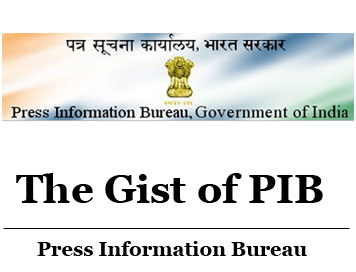(THE GIST OF PIB) Perpetual Bonds

(THE GIST OF PIB) Perpetual Bonds
(SEPTEMBER-2025)
Perpetual Bonds
-
Indian Renewable Energy Development Agency Ltd (IREDA) recently said it has raised ₹453 crore at 7.70% per annum through its second issue of Perpetual Bonds, a step that strengthens its capital base for financing green energy projects.
About Perpetual Bonds:
-
It is a fixed-income security that has no maturity date and theoretically pays interest forever.
-
The perpetual bond means the issuer is under no obligation to redeem the principal amount at any point.
-
Also known as perps or consol bonds, these instruments represent a permanent source of capital for the issuer.
-
It represents one of the purest forms of debt that closely resembles equity in certain aspects.
-
With these bonds, investors do not receive the principal amount back unless the issuer opts to call the bond.
-
This action involves returning the principal and discontinuing interest payments to bondholders.
-
This call feature provides issuers with the flexibility to refinance if market conditions become favourable.
-
Most modern perpetual bonds include call provisions that allow issuers to redeem them after a specified period, typically 5 to 10 years from issuance.
-
To compensate for the indefinite tenure and higher risk, perpetual bonds generally offer higher interest rates.
-
If the issuer goes bankrupt, perpetual bondholders get paid after other creditors but before shareholders, placing them in a middle priority tier.
-
Perpetual bonds are highly sensitive to changes in interest rates, which can cause significant fluctuations in their market price.
-
In India, banks are the primary entities that issue perpetual bonds to meet their capital requirements.
-
Even though perpetual bonds do not provide principal repayment to investors, they can be an attractive investment option for individuals aiming to generate a stable income for a long period of time.
-
From an accounting perspective, perpetual bonds often receive equity-like treatment on balance sheets, making them attractive for organisations looking to strengthen their capital structure without diluting existing shareholders' ownership.
CLICK HERE TO DOWNLOAD FULL PDF
CLICK HERE TO DOWNLOAD UPSC E-BOOKS
Study Material for UPSC General Studies Pre Cum Mains
Get The Gist 1 Year Subscription Online
Click Here to Download More Free Sample Material
<<Go Back To Main Page
Courtesy: PIB


